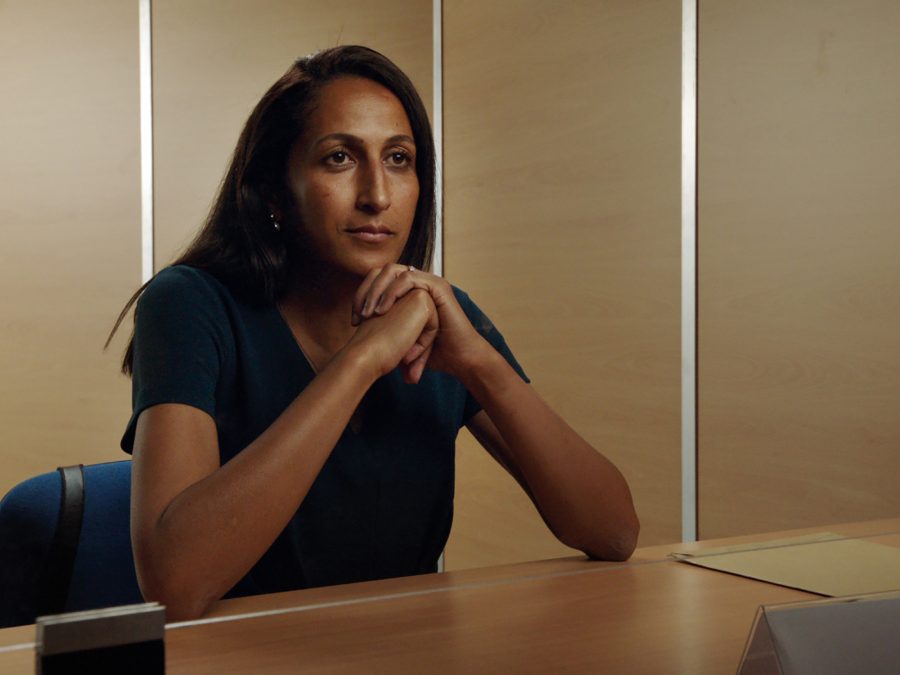The decision to hold this year’s Berlin International Film Festival as a physical event was heralded as a return to normal. But as the Berlinale strived to recreate its past glories, the films in this year’s Forum sidebar celebrated how the pandemic has created a spike in creative thinking.
Now in its 52nd year, The Forum is known for presenting films that revolutionise and reshape our vision of cinema. Perhaps the best example of this was Zheng Lu Xinyuan’s Jet Lag; a deeply personal film of fractured identities and shifting temporalities. Neatly capturing the puzzling process of trying to figure out who you really are, Xinyuan’s journey begins in Austria as she embarks on a journey back to China in the midst of the pandemic. The film also focuses on an earlier trip to Myanmar to find out what happened to her great-grandfather, who fled China in the 1940s and never returned. Xinyuan depicts reality like a dream; leaping back and forth through time, combining videos captured on her smartphone with old DV CAM footage and zoom conversations with her cousin about the recent coup in Myanmar. These fragmentary trails beautifully coalesce into a discursive meditation on familial love and our desire for meaningful connections.
Exploring the interplay between history and place, Jerónimo Rodríguez’s The Veteran also begins with the search for a missing person. The film follows Julio and Gabriel, two directors trying to make a film about an American priest who moved to Chile after dropping the atomic bomb on Hiroshima. The pair are neither seen nor heard throughout the film, instead their discussions are recounted via a third-person voiceover played over static shots of the places they discuss. The film’s digressive style brings to mind the novels of Roberto Bolaño, whose semi-autobiographical stories often revolved around imagined artists and the inescapable violence of modern life in Latin America. As the film progresses it becomes clear that the pair have serious artistic differences. Gabriel wants to make a conventional biopic about the priest, while Julio wants to explore how his story speaks to a broader political narrative and the recent protests in Chile. Unable to agree on an approach the pair eventually decide to part ways, leaving the graffitied streets of Santiago to finish their story.

Films made during the pandemic typically share certain characteristics: small crews, minuscule casts and limited locations. Tyler Taormina’s sophomore feature Happer’s Comet contains all of these, yet feels like nothing we’ve seen before. Presumably named after the eccentric billionaire and amateur astrologer in Bill Forsyth’s Local Hero, Taormina’s follow-up to Ham on Rye was shot over multiple nights in his hometown. Eschewing anything close to a conventional narrative we observe as teenagers creep out of their bedroom windows to go rollerblading and moments of spontaneous surrealism like a mechanic who gets the urge to do push-ups while listening to Johnnie Frierson “Have You Been Good To Yourself”. Driven by an inchoate desire to escape the bland homogeneity of suburbia, Taormina’s nocturnal portrait of alienation eloquently speaks to our recent collective loneliness.
Another film that used the social distancing restrictions of the pandemic to its advantage was Philip Scheffner’s Europe. Best known for his essayistic documentaries Scheffner’s first foray into fiction follows Zohra, a young Algerian woman who suffers from a severe case of scoliosis. She is played by Rhim Ibrir, who featured in Scheffner’s 2016 film Havarie, in which the director stretched a 3min cell phone video of a boat crossing the Mediterranean into a 93 minute feature that forces the viewer to look more critically at the images we are shown of the migrant crisis. Not long after Zohra’s doctor informs her that she no longer requires surgery she discovers that her residence permit has been revoked. After an infuriating interview with her case worker the screen fades to black, marking a turning point in the film. From this moment on Zohra disappears from our view; either obscured by furniture or stood just outside the frame. At a time when news stories about immigration are spun to vilify migrants, Scheffner harnesses the isolation we’ve all experienced during the pandemic to highlight society’s blindness to the lived experience of those seeking asylum.
Contemplating the beginnings of humanity and it’s uncertain future Jorge Jácome’s Super Natural was originally planned as a theatre show before the pandemic. A humorous investigation into the relationship between melancholy and desire, Jácome’s feature-length debut was shot in Madeira in collaboration with Teatro Praga and the Dançando com a Diferença; a dance company that encourages people with and without disabilities to work together on artistic projects. Challenging the audience to reconsider what inclusion means, Super Natural shifts freely from a conversation with the cosmos into a sensory fantasia of screaming dragon fruits and shimmering mermaids, with Jácome providing us with a glimpse of what a post-pandemic world might look like if we opened our eyes to new possibilities.
The post This year’s Berlinale Forum grappled with humanity’s fraught place in the world appeared first on Little White Lies.



0 Comments